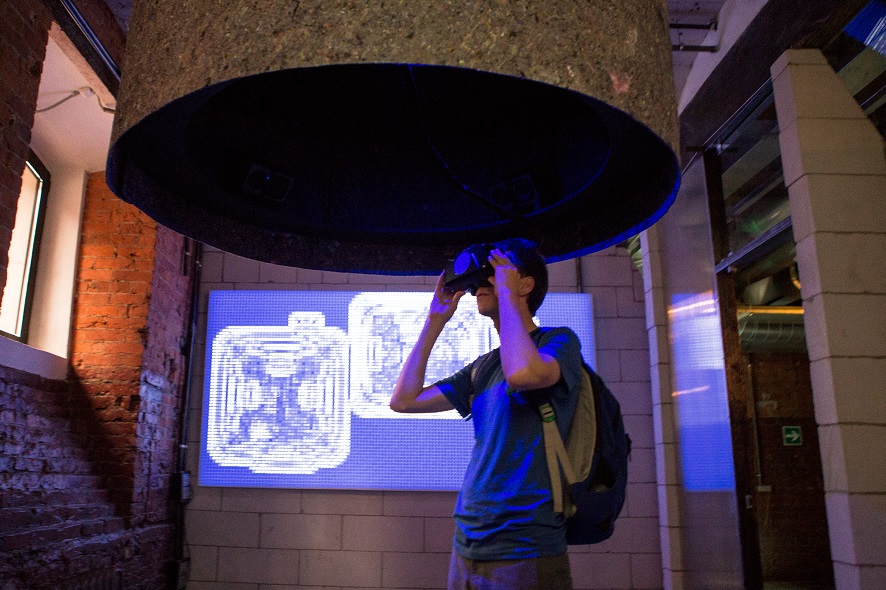The former Red October Chocolate Factory in Moscow has been repurposed into a laboratory—albeit a rather atypical one, considering that the object under investigation in it is the Earth itself and the researchers are actually artists. An exhibition running from June 21 to September 25, 2016 shows how some very creative people from Russia and Europe see our planet, and thereby opens up a dialog on the social, economic and ecological tensions characterizing life on Earth at present. These artistic approaches, for their part, open up new ways of looking at the large and small challenges that confront our planet. And visitors, in turn, are motivated to consider this: Why not confront the difficult issues that face us with creativity and art?
Here, we show you how this has played out so far with a brief overview of EARTH LAB in Moscow.
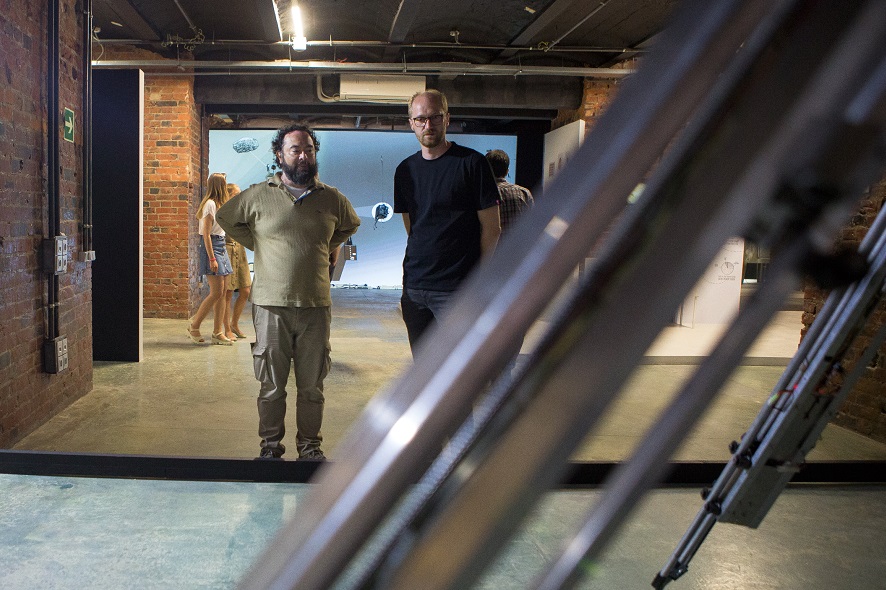
Credit: Daniil Primak, Polytechnisches Museum Moskau
Two visitors observing Der Zermesser doing its observations. This work by Austrian artist Leo Peschta measures spaces and immediately deletes the gathered data; in other words, it measures for the sake of measuring. But does this make sense? This critical work manifests Peschta’s opinion that maybe not everything on our planet can—or should—be measured.

Credit: Daniil Primak, Polytechnisches Museum Moskau
Polish artist Marek Straszak is also into measurements. His work ARS Recollected visualizes the Ars Electronica Archive’s data and depicts them as infographics, animated sequences and tangible objects. His is, to say the least, a most unusual way of dealing with huge quantities of data.
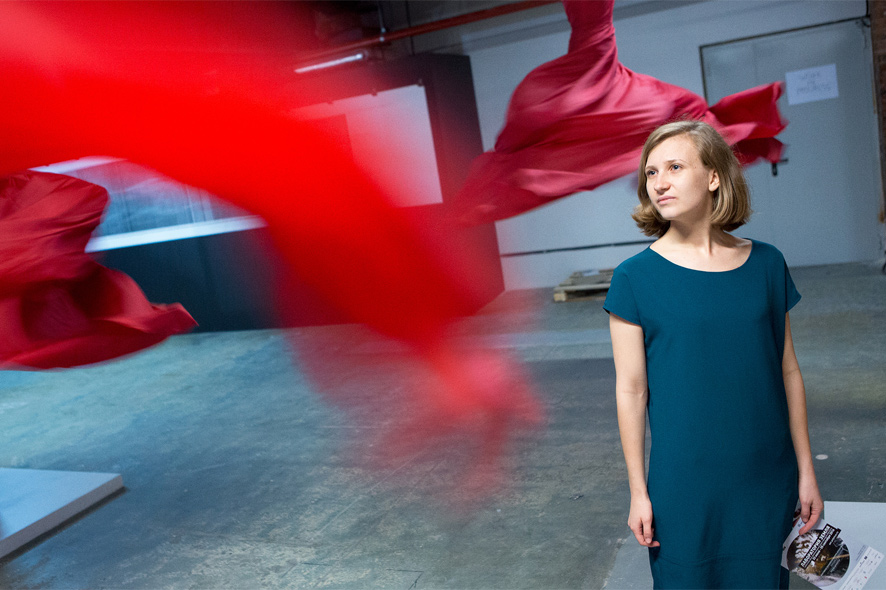
Credit: Daniil Primak, Polytechnisches Museum Moskau
Tour En L’Air is Ursula Neugebauer’s take on chance, which often plays a key role in lab work. Seemingly indiscriminately, almost as if at random, apparently in the absence of operative forces, these long dresses spinning in an inscrutable pattern in midair produce a fascinating spectacle of color and motion.

Credit: Daniil Primak, Polytechnisches Museum Moskau
A visitor cautiously examines one of the Lapillus Bugs by Japanese artists Yasuaki Kakehi, Kono Michinari and Takayuki Hoshi. But is it really a bug? Upon closer inspection, you see that the black speck is actually just a bit of Styrofoam. With the help of sound waves inaudible to the human ear, the tiny particle hovers above the plate like a fruit fly.
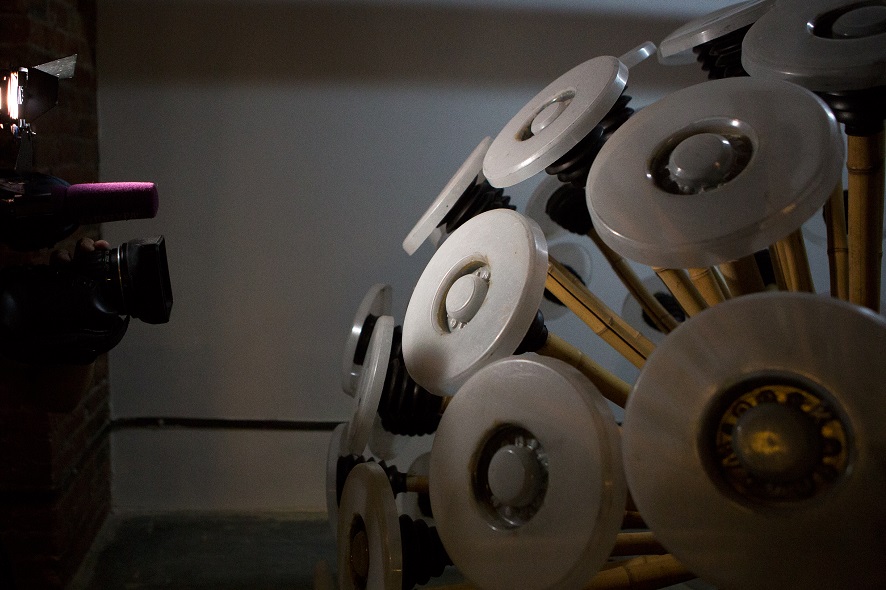
Credit: Daniil Primak, Polytechnisches Museum Moskau
A camera illuminates the Mine Kafon mine detector’s feet. Each one is approximately the size of a human foot, and the entire device weighs about the same as an adult human. This contraption constructed by two Afghani brothers, Massoud and Mahmud Hassani, rolls through a minefield to trigger those dastardly hazards without much risk to human life and limb.
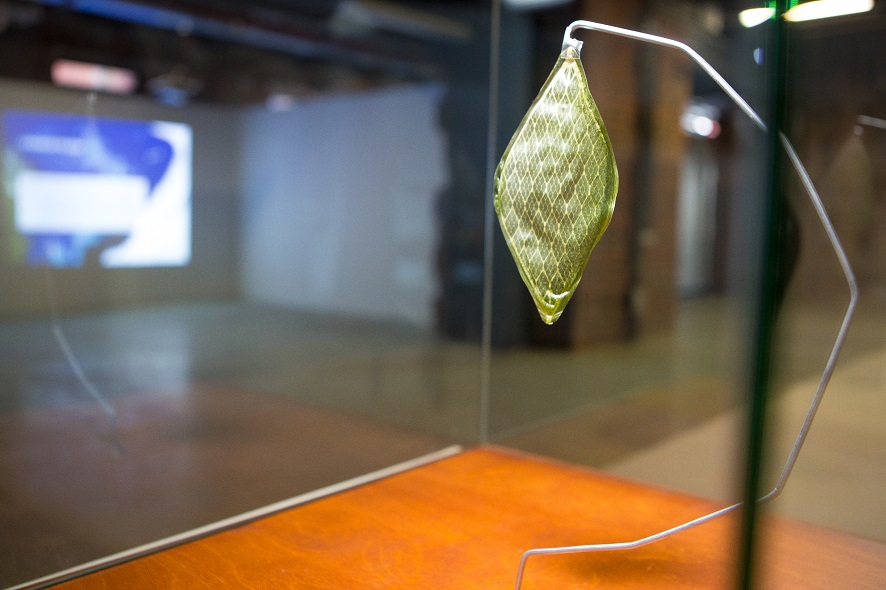
Credit: Daniil Primak, Polytechnisches Museum Moskau
Silk Leaf by Italian artist Julian P. Melchiorri can photosynthesize almost as well as real foliage. The stabilized chloroplasts in the silk take in CO2 from the air and produce oxygen from it.
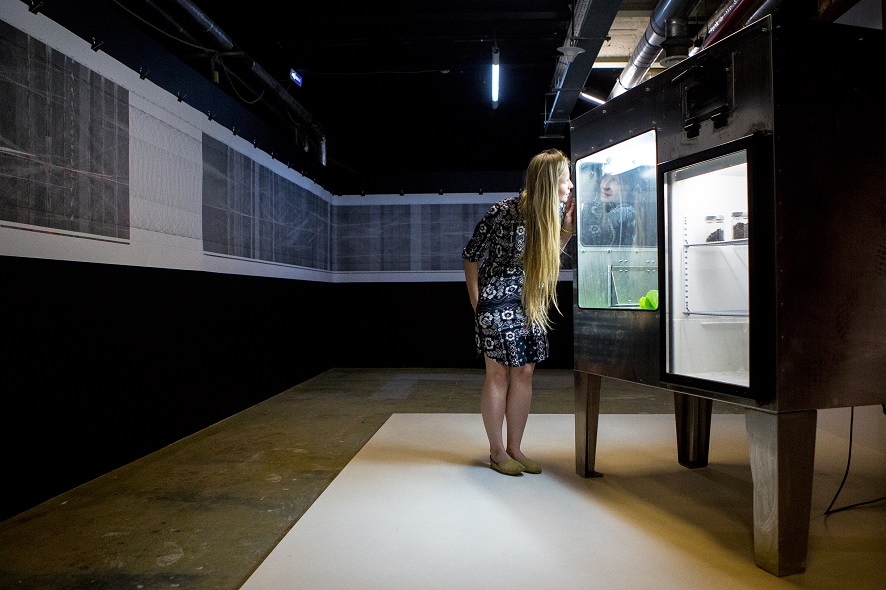
Credit: Daniil Primak, Polytechnisches Museum Moskau
A visitor observes the flies in Búi Bj. Aðalsteinsson’s Fly Factory. The young Icelandic artist designed this miniature production plant to solve our planet’s worsening nutrition problem—the fly larvae can be harvested and processed into foodstuffs.
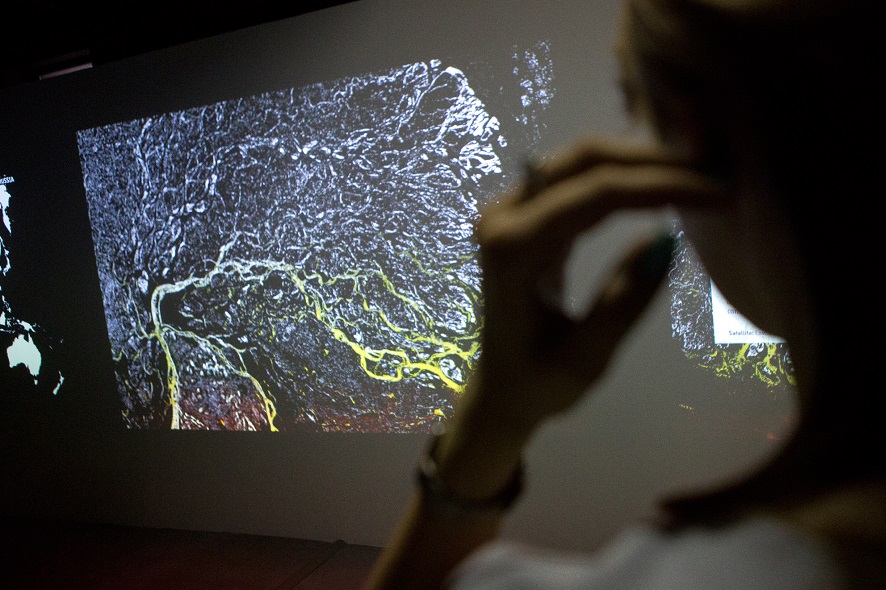
Credit: Daniil Primak, Polytechnisches Museum Moskau
Glimpses of Our Blue Planet are images of the cosmos provided by the European Space Agency. They offer seldom-seen perspectives of our Blue Planet.
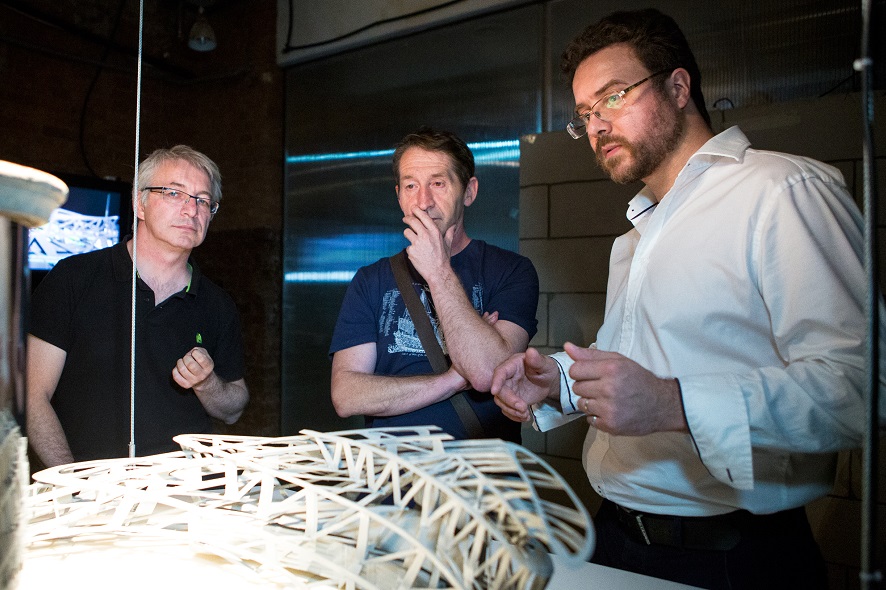
Credit: Daniil Primak, Polytechnisches Museum Moskau
Three visitors try to make out an image of Tatlin’s Tower in a cylindrical mirror. For their work Access Point, Russian artists Dmitry Bulatov and Alexey Chebykin designed a 3-D printed form that, from just the right angle, displays a picture of the tower in the curved mirror.

Credit: Daniil Primak, Polytechnisches Museum Moskau
The huge Divider by Russian artist ::vtol:: deals with wave-particle dualism. According to this phenomenon in quantum physics, every particle simultaneously possesses the characteristics of a particle as well as of a wave. This work of art splits colorful threads of light by means of rotating fans. What ultimately emerges is a pattern that, in turn, triggers sound waves and, thus, noise.
Additional info about the exhibition is available at export.aec.at/earthlab. “EARTH LAB – Artists as Catalysts” is open to the public June 21-September 25, 2016 at the former Red October Chocolate Factory in Moscow.
